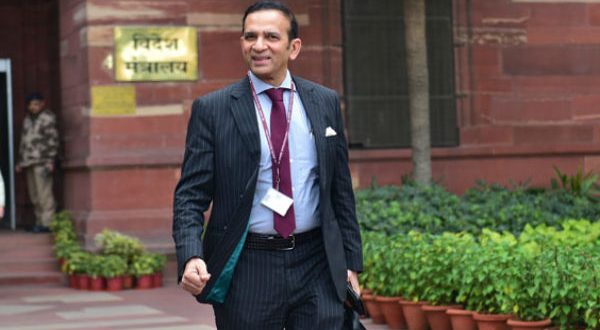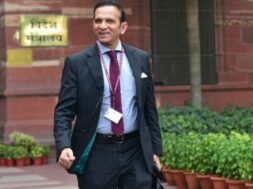
Manas Dasgupta
NEW DELHI, Jan 9: A retired diplomat has highly appreciated the Narendra Modi government’s policy on Pakistan showing that India has an answer to its sub-conventional warfare and felt that the previous Congress government’s over-reliance on diplomacy after the 26/11 terror strike in 2008 emboldened Pakistan to pursue its aggressive terror policy.
In strong comments on India’s response to the 26/11 attacks and what has changed with the surgical strikes and the Balakot strike during the Modi administration, former diplomat Ajay Bisaria said New Delhi was over-reliant on diplomacy in 2008 and its responses in recent years have ensured that it now has an answer to Pakistan’s sub-conventional warfare.
Mr Bisaria, who was the Indian High Commissioner to Pakistan when the Balakot airstrike was carried out in February 2019, also claimed that Indian diplomats’ confidence levels have changed because they have a clear mandate and confidence in the leadership.
Mr Bisaria has written a book on his experience as a diplomat, “Anger Management: The Troubled Diplomatic Relationship between India and Pakistan.” In his book he has claimed that there was a policy dilemma when it came to tackling terrorism and that India’s restraint after the 26/11 Mumbai attack had perhaps sent a wrong message to terrorists and their backers in Pakistan.
“In case India had reacted in 2008 the way it did in 2016 or 2019 with a surgical (strike) or airstrike, a strong Indian response would have entered the security calculus of Pakistan and served as a disincentive for the Pakistan army’s support of India-focused militant groups,” he wrote.
Mr Bisaria, who was also the principal secretary to former Prime Minister Atal Bihari Vajpayee, said, this had been a dilemma for India for three decades, ever since India started facing terrorism. The question before India and Indian policymakers had been how to react to it, he said.
“So the argument I make is that, perhaps, in 2008, India’s response was not sufficient, it wasn’t adequate. It was over-reliant on diplomacy and not reliant enough on the use of hard power. I make a deeper point that India has suffered terrorism in the eighties in Punjab and then in the 80s and 90s in Kashmir. If we had crafted a response to this sub-conventional warfare by Pakistan even earlier, we could perhaps have saved ourselves from a lot of bloodshed and loss of lives,” the former diplomat said.
“And the argument is that India now has an answer to Pakistan’s sub-conventional warfare, as expressed in 2016 with surgical strikes and in 2019 with airstrikes that it is dealing in the sub-conventional space where you have, you know, a kind of warfare or proxy warfare below the conventional realm of battle. And I think that is something that is going to serve India well in dealing with the Pakistan issue,” he emphasised.
On claims by some experts that Prime Minister Narendra Modi’s method of dealing with Pakistan has led to a reduction in acts of terrorism in India, the former diplomat referred once again to the capacity and the will, and said both had changed. He said that, as an answer to Pakistan’s terrorism, India decided to take much stronger steps than it had earlier in both 2016 (after the attack on an Army camp in Uri) and after the 2019 Pulwama attack.
Mr Bisaria also pointed out that Prime Minister Modi had also attempted diplomacy. “2014 and 2015, remember, was a period when he engaged with Nawaz Sharif. Nawaz Sharif was here for his inauguration, for his swearing in, and Prime Minister Modi himself made a visit to Pakistan towards the end of 2015. But we finally managed to craft a response to terrorism, which entered Pakistan’s calculus, that this would be a cost that Pakistan would have to pay, whether deploying state actors or non-state actors,” he asserted.
Pointing out that every prime minister had to deal with compulsions of their own times, Mr Bisaria said Mr Vajpayee during his time was acutely conscious of the fact that India had gone nuclear in 1998 and there ought to have been a strong nuclear responsibility in dealing with the Pakistan issue and in dealing with the world. “And what Prime Minister Vajpayee did was try to understand the nuclear threshold of Pakistan and the red lines,” the former principal secretary to PM Vajpayee said.
“So I feel that, by 2008, that threshold and those red lines were clearer and, therefore, we perhaps needed a much stronger response, the absence of which led to perhaps more acts of terrorism, greater audacity on the part of Pakistan. The fact that this government took the risk and took it a step forward and took hard action against terrorism is something that is going to stand India in good stead in dealing with terrorism,” he added.
He agreed that the perception of the general public in Pakistan about India had changed lately, he said, “A large proportion of the population is young and younger people have fairly common aspirations… You would see a huge gulf between what the official narrative is in Pakistan and what you would capture on social media… And, certainly, there’s been evidence in recent times of an admiration for India and questioning of their government, which has landed Pakistan in the kind of economic crisis it has,” he said.













